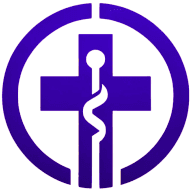Advice for Starting Out in Healthcare Research: What I Wish I Knew
Delving into the realm of healthcare research can be as challenging as it is rewarding. This article distills invaluable advice from seasoned experts to guide newcomers through the intricacies of the field. Explore insights on balancing collaboration, embracing evidence-based practice, prioritizing patient experience, and integrating real-world data for a successful research career.
- Balance Collaboration with Focused Research
- Embrace Evidence-Based Practice and Continuous Learning
- Prioritize Patient Experience in Healthcare Research
- Blend Data with Real-World Patient Insights
Balance Collaboration with Focused Research
As an early investigator, I would have one piece of advice for my younger self to help with early career development. My advice is to balance "Saying 'yes' to opportunities to collaborate and work on research for productivity" with "Focusing your research into a cohesive body of work." Early investigators often find several mentors who present many diverse opportunities to advance research. Driven and hardworking early investigators may find themselves advancing several unrelated projects which are all productive and good by themselves but do not result in a cohesive body of work. However, academia, funding, and promotion demand a cohesive body of work, so in addition to being open to collaboration and being productive, I would advise early investigators to choose a direction and attempt to find research opportunities, projects, and professional career development to facilitate longitudinal research in their intended area. This focus makes their work highly impactful, sustainable, and compatible with career advancement and development.

Embrace Evidence-Based Practice and Continuous Learning
If I could give one piece of advice to my younger self starting out in healthcare research, it would be this: Never underestimate the importance of evidence-based practice and staying current with advancements in the field. Early in my career, I often relied on traditional methods and personal experience. However, as healthcare continues to evolve rapidly, continuous learning, adopting new technologies, and integrating research-backed approaches into patient care are essential.
For example, when I first started working with high-risk pregnancies, many management protocols were based on older guidelines. However, studies published in The Lancet (2018) highlight that timely interventions, such as advanced cardiotocography, can significantly reduce maternal and fetal mortality rates. Similarly, the growing use of minimally invasive surgery has improved patient outcomes and shortened recovery times.
Equally important is the ability to critically assess research. Some widely accepted treatments may not be as effective as once believed, as demonstrated by recent studies in the Journal of Obstetrics and Gynecology. Healthcare professionals must continuously evaluate new findings and adapt their practices based on the latest peer-reviewed evidence.
Ultimately, a commitment to lifelong learning and rigorous research evaluation is not just beneficial for career growth; it is essential for providing the highest standard of patient care.

Prioritize Patient Experience in Healthcare Research
Focus on the patient experience above everything else. When I started in healthcare research, I spent too much time analyzing regulations, systems, and industry trends. That knowledge is necessary, but staying focused on the people who need help is more important. Patients don't care about industry jargon. They want clear, fast, and affordable access to the care they need.
If I had understood this earlier, I would have streamlined processes sooner. At Elevate Holistics, we've removed unnecessary steps, simplified communication, and prioritized accessibility. That approach has helped thousands of patients get medical marijuana cards without frustration. The healthcare system is complex, but simplifying it for the patient should always be the goal.
Many healthcare businesses get lost in compliance and administration. While those are essential, they should never dictate the patient's experience. The most successful solutions remove friction and make care more accessible. Every decision should be made with the end user in mind.
Blend Data with Real-World Patient Insights
If I could go back and give my younger self one piece of advice when starting out in healthcare research, it would be this: don't get so caught up in the data that you forget about real people. Early on, I was focused on reading every study, chasing every research paper, thinking that was the only way to be a great PT. But over time, I learned that some of the most valuable insights come from simply working with patients every day.
You start to notice patterns, and see how people actually respond to treatment--not just in controlled studies, but in real life. That experience becomes its own kind of research. Blending evidence with hands-on clinical work is where the real magic happens, and it's what ultimately leads to better outcomes for your patients.
All in all, I'd tell my younger self: read the studies, stay curious--but don't underestimate how much you'll learn just by listening, observing, and treating people. That's where it all comes together.



